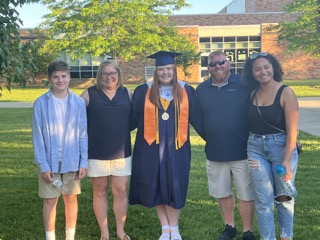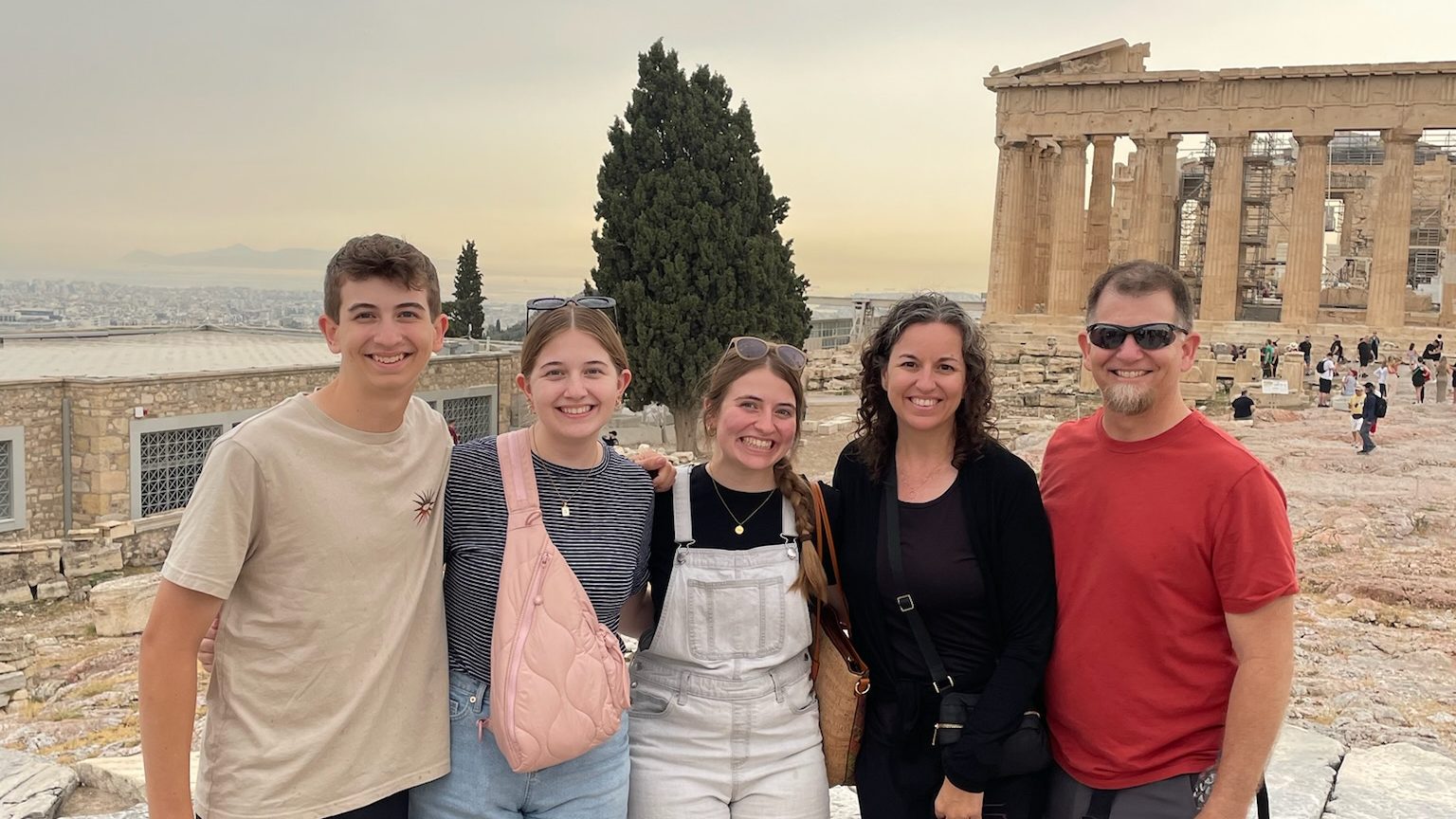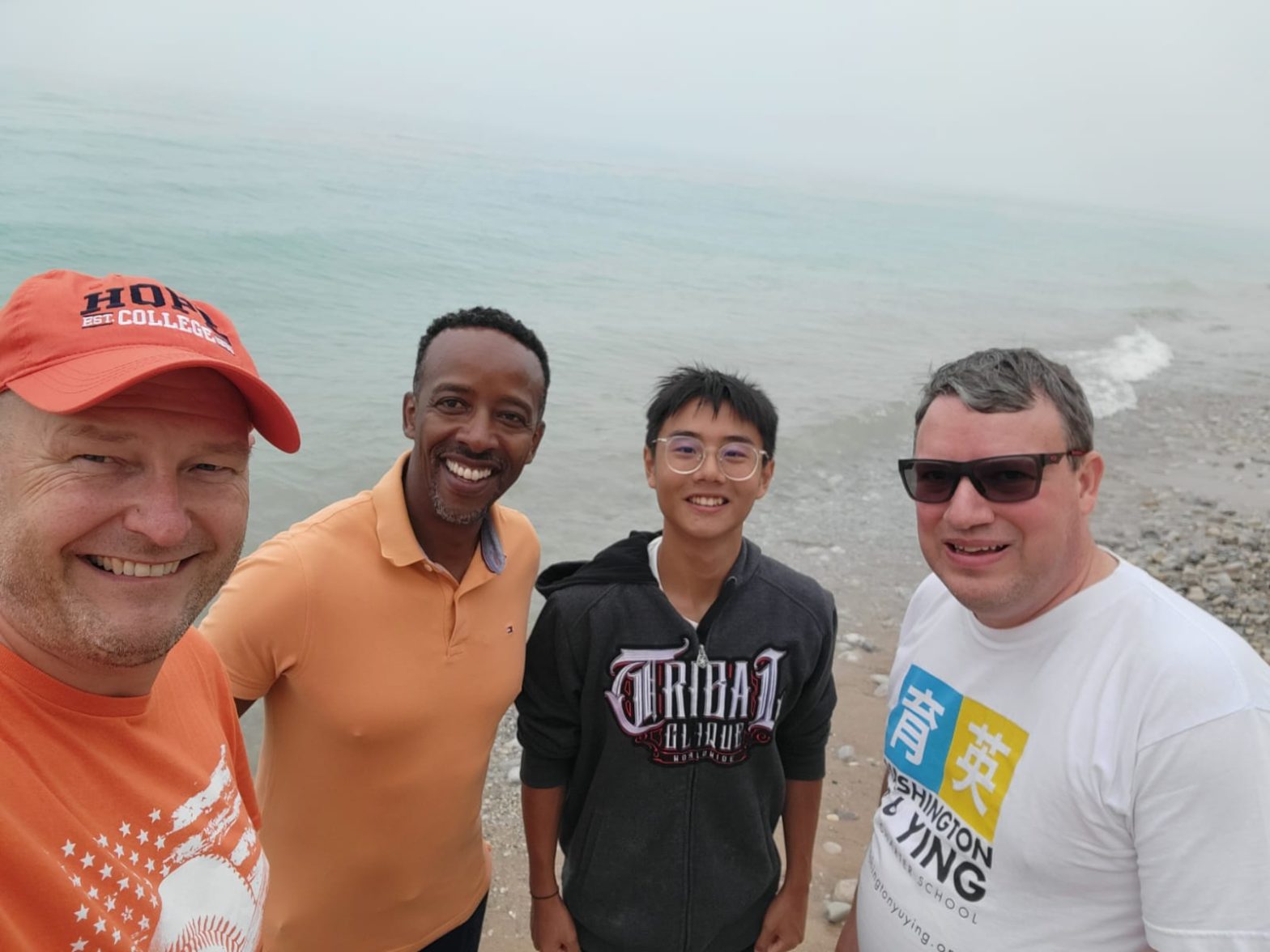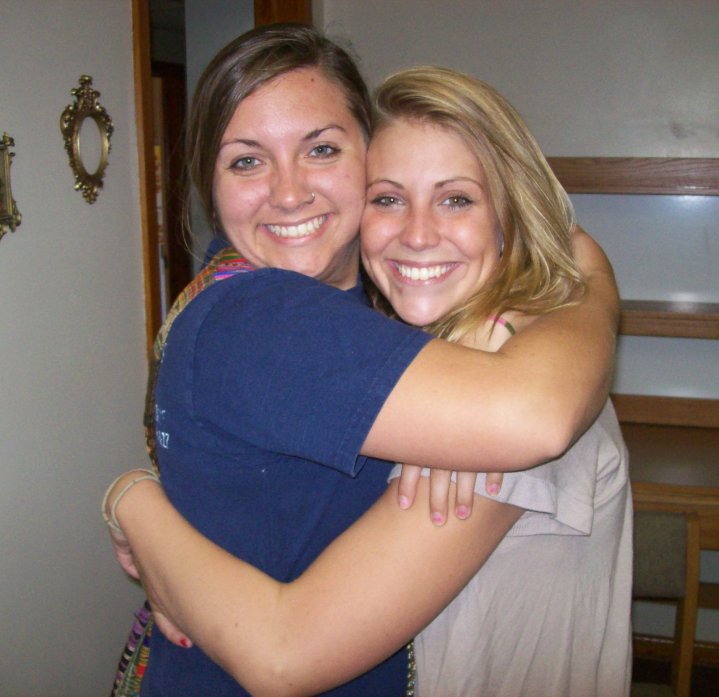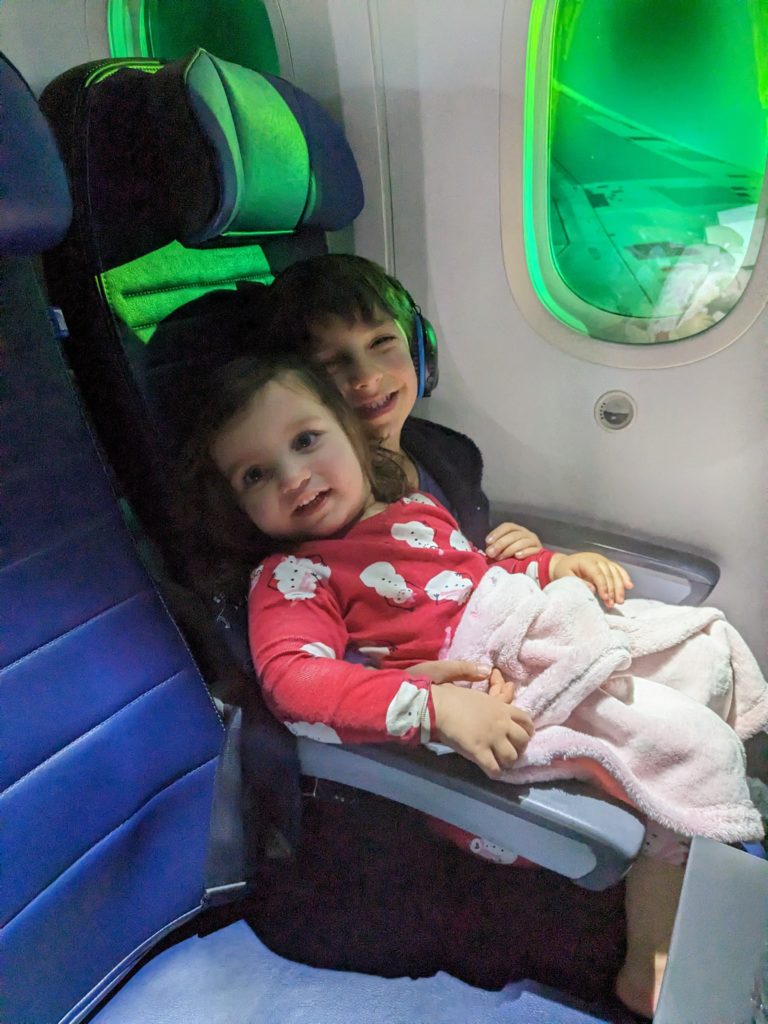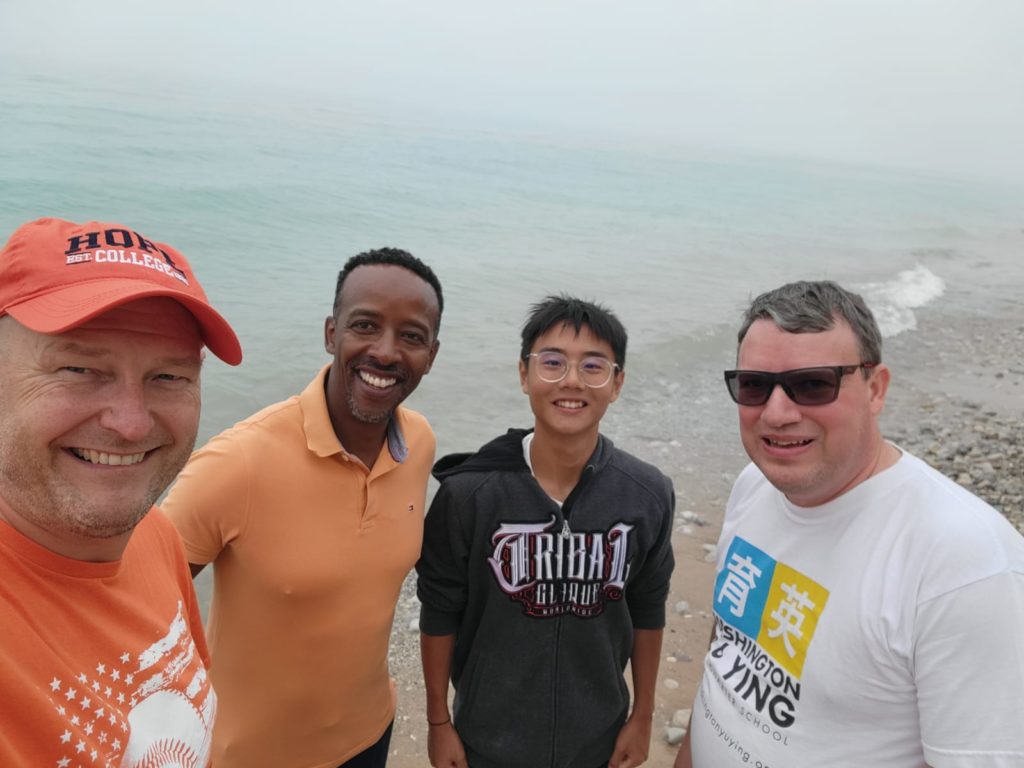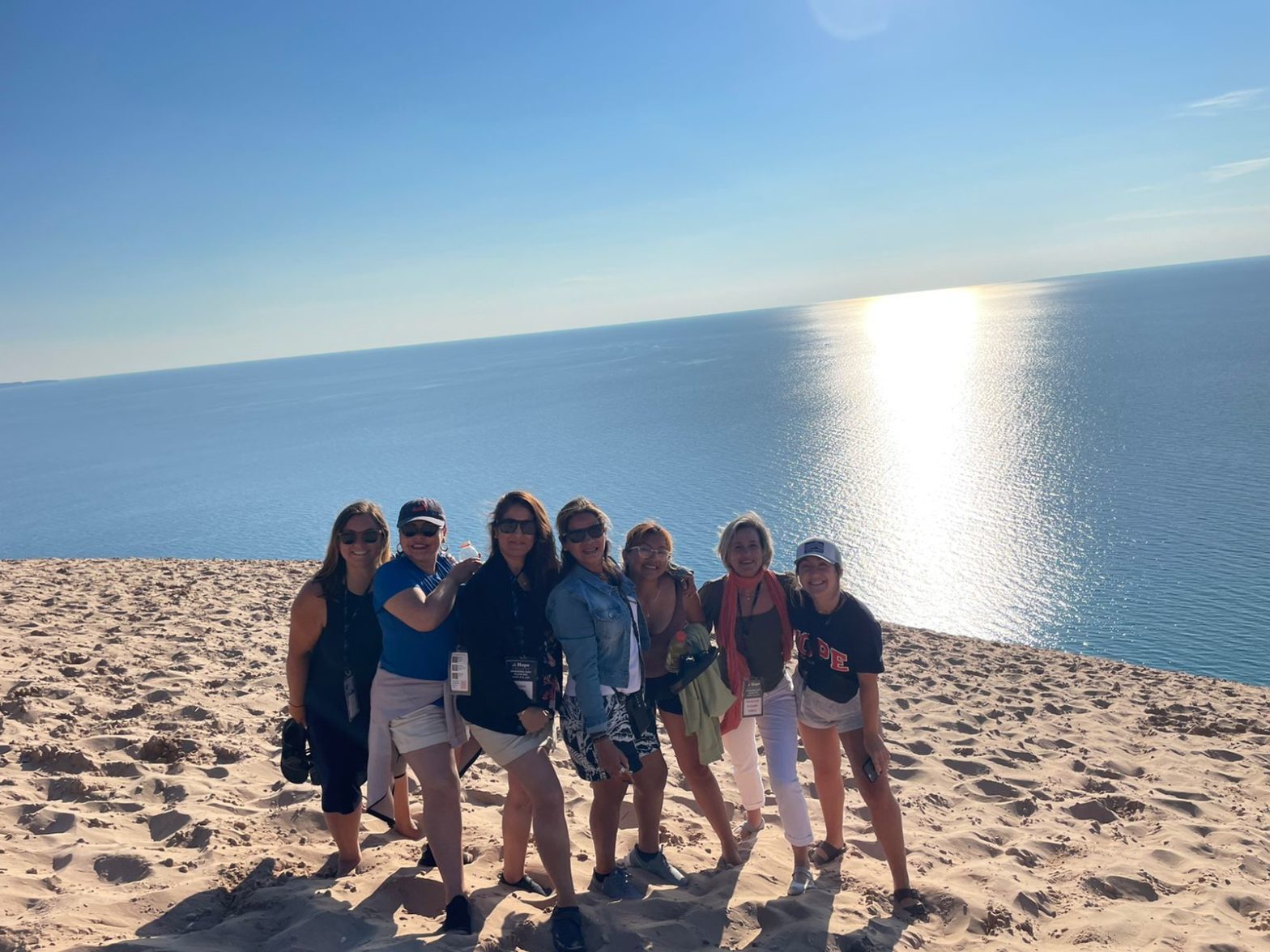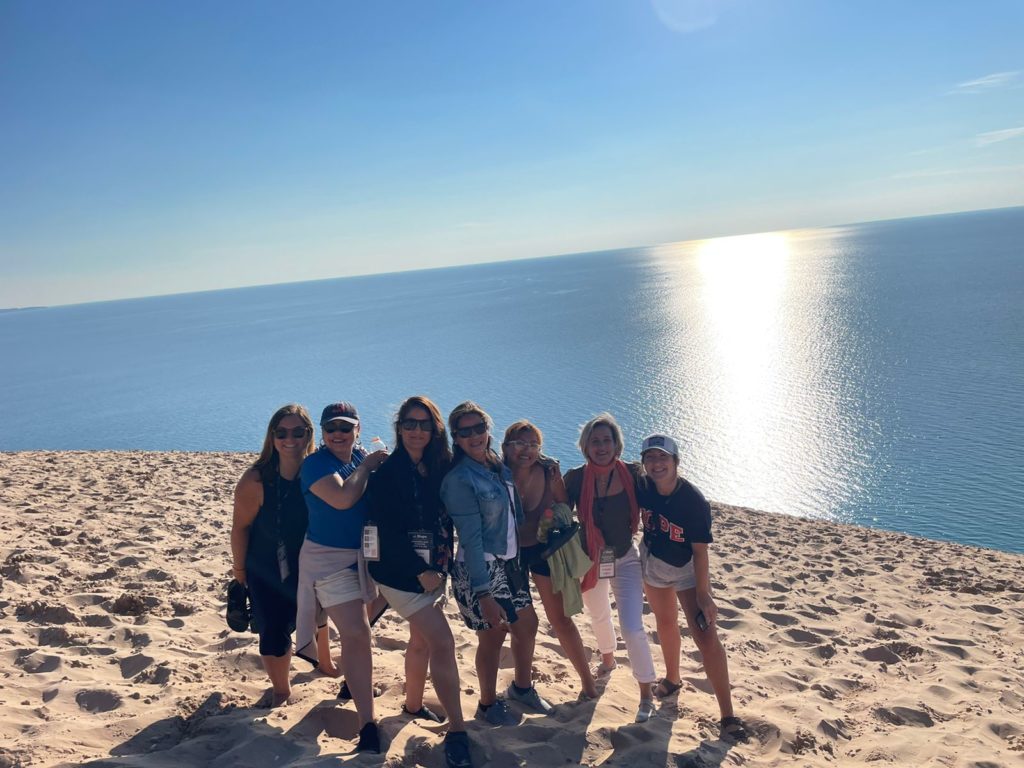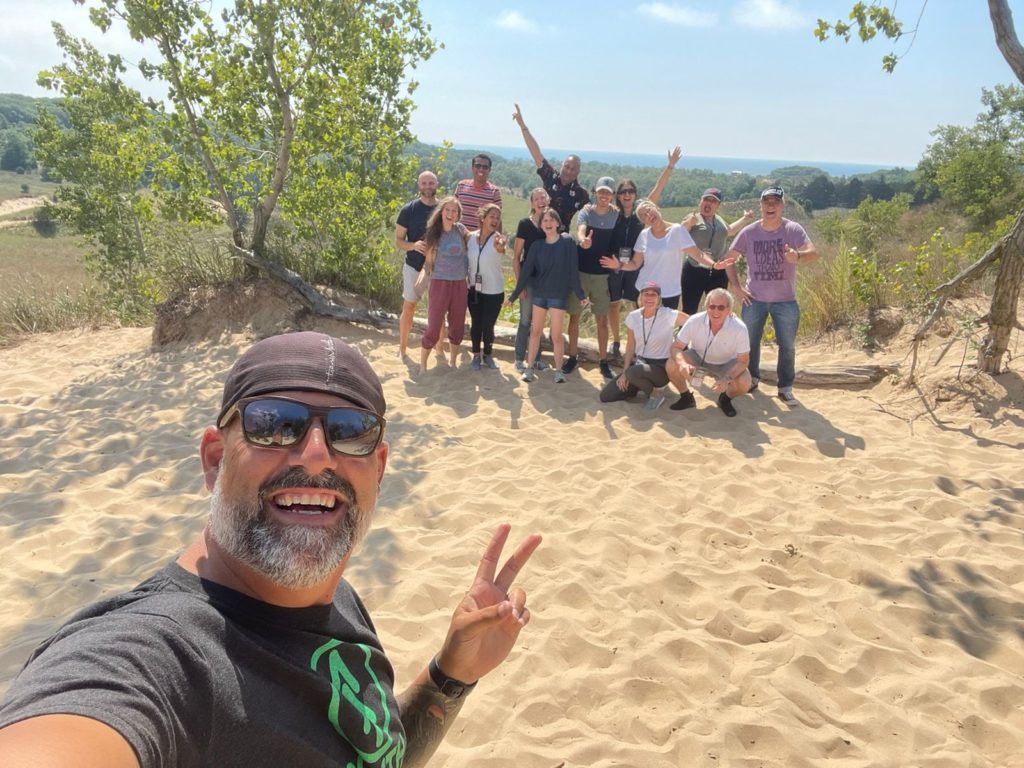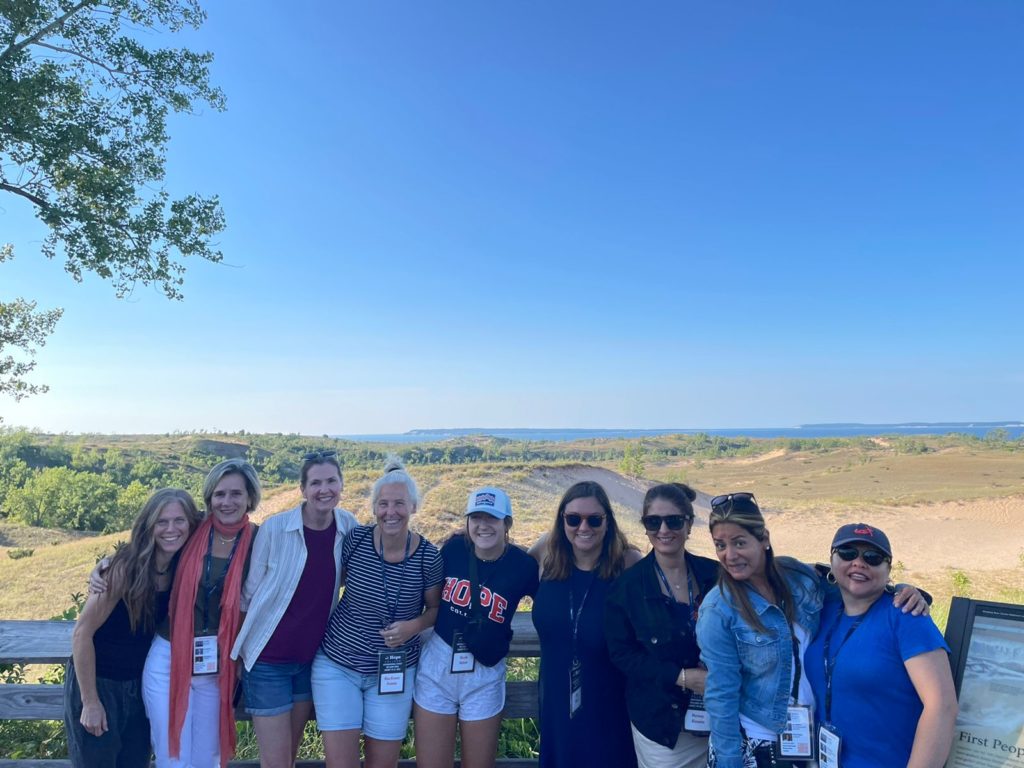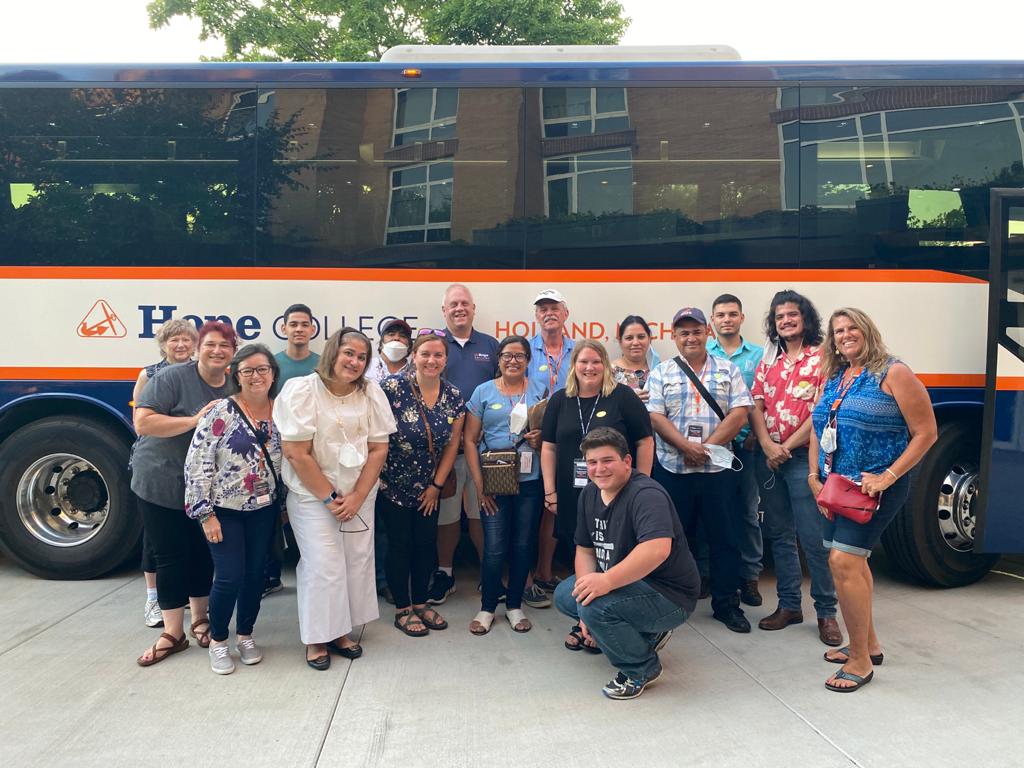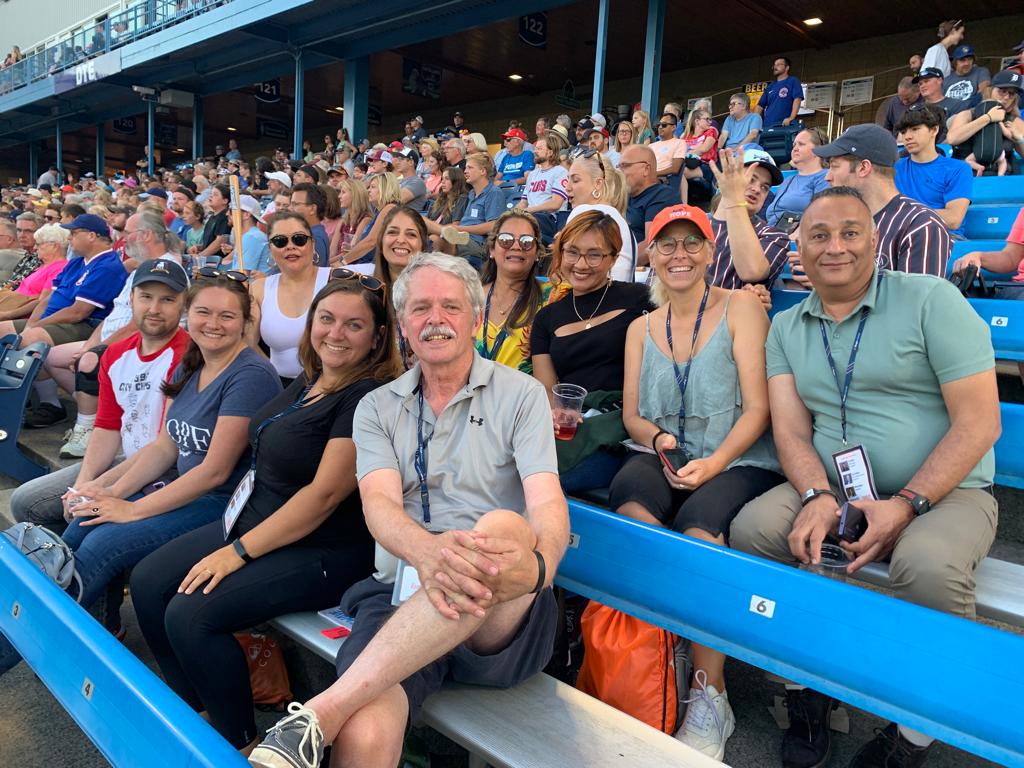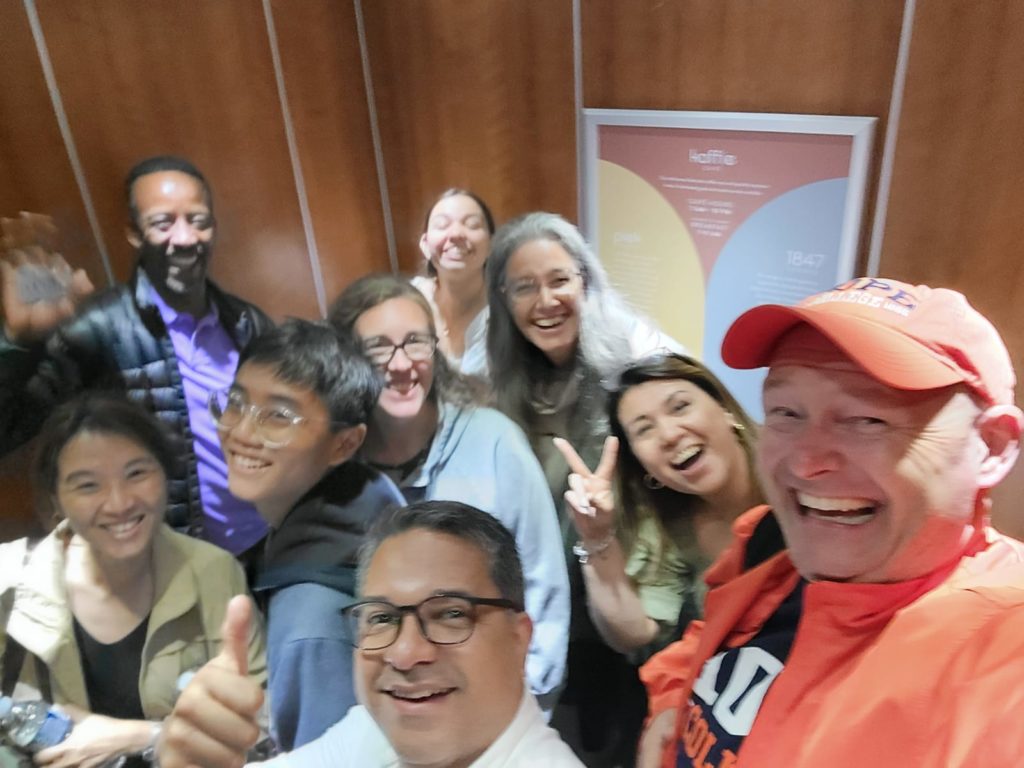Author’s Note: “Hope College Dining holds an impressive rank—14th out of 93 colleges in Michigan. This article isn’t a critique of our dedicated dining staff; it’s simply an exploration of some additional options.”
The March 17, 2022 issue of “The Scribe,” the student newspaper at University of Colorado-Colorado Springs, ran this satirical story: All dining halls close, students live on box mac n’ cheese. The opening paragraphs read as follows:
“In a harsh yet swift move, chancellor Jeff Bezos ordered all the dining halls to be shut down indefinitely due to budget cuts. According to the very gracious Bezos, the school is not profitable enough to be able to keep on with the dining halls. Despite the move, students can still go to the bottom floor of the Clock Tower and pick up a box of mac n’ cheese. These are being offered to ensure students don’t starve, and because it’s the only food the school can offer right now.”
They say the best humor is based on the truth. And although it’s not true that Hope College is reducing meal options due to financial constraints, I believe it’s safe to say that many a student has opted for Kraft Mac & Cheese or Ramen Noodles as a delightful departure from what they perceive as the “same ole same ole.” (By the way, that reminds me of a funny scene from the TV sitcom M*A*S*H that illustrates the point…you can watch it here.) It’s not that Phelps or Cook provide less than desirable food. It’s just that some students look forward to the opportunity to get creative and start building some of their own meals! Let me share a few alternatives my own kids have added to their lineup…
Residence Hall Kitchens – Not every residence hall has a full kitchen, but for those that do, this is a great way to take control of your meals and break free from the monotony of the dining hall. It doesn’t take much—just a few basic ingredients and a simple plan. You can stock up your student with essentials like pasta, rice, veggies, and proteins. Trust me, I’m no cook. Yet, even I could use those basics to prepare meals quickly and easily. With a little prep, they can whip up simple meals like stir-fry, tacos, or even homemade soup. This is a cost-effective alternative and lets them customize meals to their liking and dietary needs. This can also be a great community builder…they can grab a few roommates, split the grocery bill, and turn meal prep into a fun, communal activity.
Kletz – Kletz Market is an on-campus café that provides another option to the dining halls. Here’s the description from Hope’s website, “Located in the Bultman Student Center, Kletz Market offers a bright and contemporary dining experience with an emphasis on fresh, local and sustainable products. Stop by for coffee, creative sandwiches and salads, fresh sushi, and made-to-order pizzas you typically won’t find anywhere else on campus.” I can attest that this description is accurate. And your student can use Dining Dollars (a balance on student accounts) to get 10% off.
8th Street – For those of us who have been around Hope for a while, we’ve quickly fallen in love with 8th Street. It may not be the most budget-friendly option. However, your student has this possibility if they want to switch up their meal routine from the dining halls. 8th Street in downtown Holland offers plenty of great alternatives just steps from campus. Whether you’re in the mood for a casual bite or something a little more special, this vibrant downtown area has it all—from cozy coffee shops like Lemonjello’s Coffee to global cuisine at places such as Poquito. Students can get comfort food at places such as New Holland Brewing (the Pinwheels are amazing). Or they can swing by Crust 54 for wood-fired pizza. They can even grab a quick, fresh meal by heading to The Good Earth for healthy bowls and smoothies. 8th Street has something to satisfy every craving—and it’s just a short walk away!
Find a Friend with an Apartment – Okay, stay with me on this one. I’m going to take you back to my senior year of college. I lived in an off-campus apartment with two roommates, and while we weren’t exactly culinary experts, we enjoyed experimenting in the kitchen. Over time, word of our “home-cooked meals” started to spread through our friend group. We’d often have people over who would actually ask us to cook for them. Fast forward to today… my son Jules (Class of ’25) is pulling the same move. His friends bring the groceries, he cooks the meal—and let me tell you, the boy can cook. It’s a win-win… they get a break from the dining hall, and my son gets a free meal.
Easy Eats – HelloFresh is a meal-kit delivery service that provides fresh ingredients that are proportioned and ready to cook. They have a line that may be perfect for your student: Easy Eats. For your student, this could be a game changer. Easy Eats offers a convenient, customizable way to enjoy fresh, home-cooked food without the hassle of grocery shopping or meal planning. Maybe your student just wants a quick meal before class. Or maybe they just want to head to their room at the end of the day needing to study. Whatever the case, they can leverage Easy Eats and its pre-portioned ingredients and easy-to-follow recipes. All they need is access to a dorm kitchen or a shared space, and within minutes, they’ll be cooking up something that’s not only delicious but also something different than the typical dining hall fare. Plus, they have options that cater to different dietary preferences and restrictions.
Dorm Room Meals – Lastly, one more option to consider as an alternative to the dining halls is simply making meals in the residence hall. Now, I know this requires a bit of creativity, and it’s certainly not the only option, but incorporating a few of these dorm-friendly meals alongside visits to Phelps or Cook might offer just the right amount of variety. During her years on campus, my daughter Molly ’22 made great use of these kinds of meals. Below is a sample menu of healthy options that can be whipped up with just a microwave (found in the shared kitchen of every residence hall). Your student could use this as a starting point for whipping up their own dorm-friendly meal rotation…
- Monday
- Breakfast: Microwaveable oatmeal with sliced bananas and a spoonful of peanut butter.
- Lunch: Brown rice and canned black beans with salsa, topped with shredded cheese and avocado.
- Dinner: Microwaved sweet potato with Greek yogurt, spinach, and a drizzle of olive oil.
- Tuesday
- Breakfast: Whole grain English muffin with almond butter and apple slices.
- Lunch: Quinoa microwaveable packet, mixed with canned tuna, cherry tomatoes, and a squeeze of lemon.
- Dinner: Veggie and chicken sausage wrap: Pre-cooked chicken sausage microwaved with mixed greens in a whole wheat wrap.
- Wednesday:
- Breakfast: Greek yogurt parfait with granola, honey, and mixed berries.
- Lunch: Microwaveable lentil soup paired with whole grain crackers and sliced cucumber.
- Dinner: Steamable frozen veggies mixed with microwaved brown rice and soy sauce for a quick veggie stir fry.
- Thursday:
- Breakfast: Microwave scrambled eggs (in a mug) with a side of avocado toast on whole wheat bread.
- Lunch: Hummus, microwaveable quinoa, and baby carrots stuffed in a whole grain pita.
- Dinner: Microwaveable stuffed bell peppers with ground turkey, salsa, and shredded cheese.
- Friday:
- Breakfast: Instant whole grain oatmeal with cinnamon, a handful of walnuts, and raisins.
- Lunch: Spinach and ricotta ravioli (microwaveable) with a side of steamed broccoli.
- Dinner: Pre-cooked chicken slices with a microwaveable baked potato and a side of microwave-steamed green beans.
- Saturday:
- Breakfast: Chia seed pudding (prep overnight) with almond milk, honey, and fresh fruit.
- Lunch: Microwaveable edamame with instant couscous and a drizzle of sesame oil.
- Dinner: Whole wheat tortilla quesadilla with low-fat cheese, black beans, and avocado.
- Sunday:
- Breakfast: Microwave egg white omelet with pre-chopped veggies, spinach, and a sprinkle of cheese.
- Lunch: Microwaveable split pea soup with whole grain crackers and a handful of mixed nuts.
- Dinner: Instant brown rice bowl with rotisserie chicken (store-bought), microwaved veggies, and a dash of soy sauce.
So, there you have it… a few alternatives to dining hall meals. At the end of the day, how your student fuels their body is entirely in their hands. While dining halls are convenient, students can take control of their meals as we’ve described here. As in all areas they will learn at Hope, it’s up to them to make choices that align with their goals, schedule, and preferences. Hopefully, the alternatives outlined here will be of help. These ideas and others are out there, but it’s their decision to embrace them and take charge of what goes on their plate.
Jay and Janice Hidalgo live and work in Grand Rapids, Michigan. They have four children, one of which is a Hope graduate, Molly Hidalgo ’22, and one of which is a senior at Hope, Jules Hidalgo ’25.


